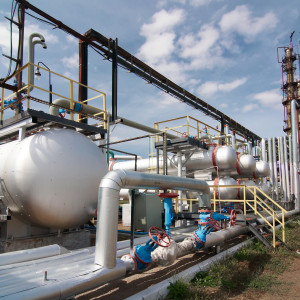Two weeks ago, the US Department of Energy (DOE) proposed changes to its process for review of Liquefied Natural Gas (LNG) export applications to non-free trade agreement (FTA) countries. Good idea, but this procedural change only further muddies the water on next steps for these applications. The new policy would eliminate conditional approvals for terminals, and have the DOE make final public interest determinations only after completion of the review required by environmental laws and regulations by FERC. The DOE action merely highlights the need for legislation to set clear rules and timelines on the DOE and streamline project approvals.
Fortunately, the House of Representatives will soon be considering legislation that does just that. Later this month the House will vote on H.R. 6, the “Domestic Prosperity and Global Freedom Act” introduced by Rep. Cory Gardner (R-CO), a bipartisan-supported bill that would require the DOE to approve LNG export applications within 90 days of the end of the comment period or after the enactment of the new legislation.
This legislation reflects the significant shift in market dynamics that has occurred over the past few years. Only five years ago, there were 47 applications for LNG import terminals pending due to the major and growing shortage of domestic gas and a stagnant energy market. Domestic prices were at a high of $11.00 per BTU and forecasts of recoverable domestic natural gas resources were a small fraction of today’s most conservative estimates.
Today’s energy landscape stands in stark contrast; the U.S. Energy Information Agency reports that energy imports are at historic lows; and estimates show that natural gas production far outstrips domestic demand by 2035.
The United States is poised to become a top exporter of LNG, resulting in significant economic benefits to the nation. According to a recent study by ICF International, LNG exports could add between 73,100 and 452,300 jobs in the U.S. by 2035. An updated analysis of the 2012 NERA Economic Consulting study for the Department of Energy similarly found that LNG exports would have “net economic benefits” in every export scenario, could contribute as much as $86 billion to GDP in 2038 and potentially add up to $60 billion to U.S. trade balance.
LNG exports would also help the U.S. to strengthen global energy security amid confrontation from Russia, Iran and several other nations. Disruptions in European markets have a direct impact on U.S. security and economic priorities. LNG exports will send a strong signal to foreign entities that use energy as a political weapon that U.S. is ready to lead this market. Opening global markets to American natural gas would diversify our allies’ options and prevent future market disruptions. By enacting policies now, we can set the standard for a more stable global market in the years to come.
The changing energy landscape is a reality, yet America’s ability to realize the huge economic and geopolitical benefits is not guaranteed. Some groups and companies are working hard to undermine LNG exports despite its clear benefits to the nation and our allies and trading partners. Those cynical “me first” companies want to keep natural gas prices artificially low; they argue that LNG exports will cause consumers to feel the pain in their wallets, when no credible analysis comes to any such conclusion. The free exchange of goods across borders benefits American consumers and businesses. Opening global markets to American LNG provides certainty to the LNG market and will sustain growing demand that will drive continued investment in natural gas production.
For the sake of logic and the good of the nation, legislators should update the antiquated regulatory framework that limits American energy exports. The “Domestic Prosperity and Global Freedom Act” is meaningful legislation that reflects America’s growing status as one of the world’s greatest energy producers. It should be adopted without delay, along with new legislation to accelerate the permit process for oil and natural gas pipelines in this country.

